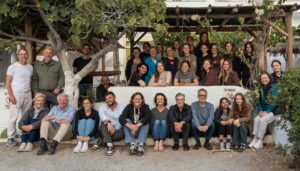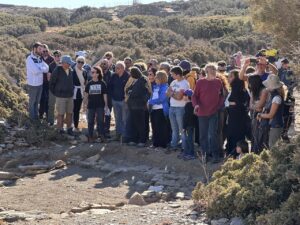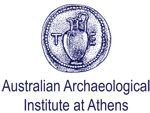
It’s a Wrap, Season Finale !
After six incredible weeks the 2024 Zagora Archaeological Project field season is coming to a conclusion this weekend as we prepare to say farewell to our second group of students and to many of our field specialists.
The archaeological site of Zagora, on the Greek island of Andros, is a unique snapshot in time. This Early Iron Age settlement dates back almost 3000 years, from around 900–700 BCE.
Intriguingly, the people of Zagora left their homes about 700 BCE, leaving behind a rare record. Unlike many other archaeological sites, the area was not resettled. The buildings were left as they had been lived in, eventually collapsing where they stood.
But all these millennia later, the building layout remains, along with artefacts in the rooms where they had been stored and used. This provides clear evidence of how life was lived at Zagora, which is extremely rare among central Aegean Early Iron Age sites. So far only 10% of the 6.7-hectare site has been excavated.
In September 2024, a team of archaeologists are back at work to explore Zagora further, bringing cutting-edge 21st-century methods to this ancient town.
The 2024 season is a collaboration between the University of Sydney’s Discipline of Archaeology, the Australian Archaeological Institute at Athens, the Chau Chak Wing Museum and Aargus Pty Ltd. We aim to learn more about the site’s economy, its hydrology and ancient environment, and its place in the wider eastern Mediterranean.
Discover more about the Zagora Archaeological Project on our Zagora Dig Blog

After six incredible weeks the 2024 Zagora Archaeological Project field season is coming to a conclusion this weekend as we prepare to say farewell to our second group of students and to many of our field specialists.

On Monday October 28th the Zagora Archaeological Project as part of its community outreach and engagement, held a public open day event. We were very gratified to receive and welcome approximately seventy people on a lovely autumn afternoon.




Unless otherwise stated, the images and text on this website are licensed under CC BY-NC. Images to be attributed according to the copyright acknowledgement in the caption.